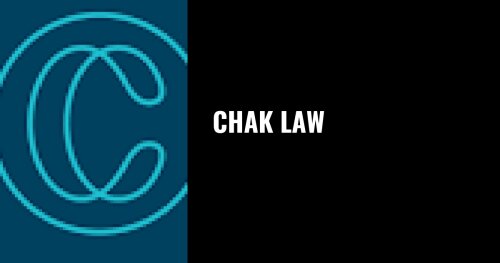Best Brain Injury Lawyers in Canada
Share your needs with us, get contacted by law firms.
Free. Takes 2 min.
Or refine your search by selecting a city:
List of the best lawyers in Canada
About Brain Injury Law in Canada
Brain injuries in Canada are often the result of accidents, medical errors, or violent acts, and they can have a profound impact on the lives of victims and their families. These injuries can range from mild concussions to severe brain trauma, leading to long-term impairments in cognitive, physical, and emotional functions. Canadian law provides various avenues for individuals to seek compensation and support for brain injuries, involving a combination of tort law, insurance claims, and healthcare regulations.
Why You May Need a Lawyer
There are several situations where individuals might require the assistance of a lawyer specializing in brain injury cases. These include:
- Personal Injury Claims: Legal advice can be critical in pursuing compensation after an accident, such as a car crash or a slip and fall incident, which results in a brain injury.
- Medical Malpractice: If a brain injury was caused by a healthcare professional's negligence, a lawyer can help navigate the complex process of filing a medical malpractice lawsuit.
- Insurance Disputes: Disagreements over insurance claims related to brain injury can often require legal intervention to resolve.
- Disability Benefits: A lawyer can assist in obtaining government or private disability benefits, which may be necessary for ongoing care and rehabilitation.
Local Laws Overview
Canadian laws regarding brain injury claims vary by province, but common elements include:
- Negligence and Liability: To claim compensation, it must be proven that the injury was due to someone else's negligence.
- Statute of Limitations: There are time limits within which a claim must be filed, which can differ from province to province.
- Health and Safety Regulations: Provincial laws govern workplace safety to prevent injuries, including traumatic brain injuries.
- Benefit Programs: Each province has different programs for health care, rehabilitation, and financial support for brain injury victims.
Frequently Asked Questions
What is a traumatic brain injury (TBI)?
A traumatic brain injury is a type of injury to the brain caused by external force, such as a blow to the head, leading to temporary or permanent cognitive, physical, or psychosocial impairments.
How do I know if I have a valid brain injury claim?
To have a valid claim, you typically need to prove that another party's negligence led to the injury and that you suffered damages or losses as a result.
What compensation can I receive for a brain injury?
Compensation for a brain injury may include medical expenses, lost wages, pain and suffering, rehabilitation costs, and in some cases, punitive damages.
How long do I have to file a claim for a brain injury?
The timeframe, or statute of limitations, varies by province and the specifics of the case. It is crucial to seek legal advice promptly to ensure you file within the permitted period.
Will my case go to trial?
Many personal injury cases settle out of court. A trial is possible if parties do not reach a settlement agreement, but an experienced lawyer can often negotiate a favorable outcome without going to court.
Can I claim on behalf of a family member with a brain injury?
Yes, if your family member is unable to make legal decisions themselves, you can act on their behalf, often by establishing a legal guardianship or power of attorney.
How is a brain injury case valued?
The value of a case depends on various factors, including the severity of the injury, the impact on quality of life, and financial losses incurred. Evaluations by medical and financial experts are typically involved.
What is contributory negligence?
Contributory negligence occurs if the injured person is found partly responsible for their injury, potentially reducing the compensation they receive.
How can I prove a brain injury in court?
Evidence such as medical records, expert testimonies, and accident reports are critical in establishing the extent of the injury and the liability of the responsible party.
What should I look for in a brain injury lawyer?
Look for a lawyer with experience in personal injury law, specifically brain injury cases. They should have a proven track record, excellent communication skills, and the resources to comprehensively handle the case.
Additional Resources
Here are some valuable resources and organizations that can help provide information and support related to brain injuries in Canada:
- Brain Injury Canada: A national organization offering advocacy and support resources for those affected by brain injury.
- Provincial Brain Injury Associations: Many provinces have their own associations offering localized support and information.
- Canadian Institutes of Health Research (CIHR): Provides funding and support for research into brain injury and rehabilitation.
- Legal Aid Services: Available in each province to provide low-cost or free legal assistance to those who qualify.
Next Steps
If you need legal assistance for a brain injury, consider the following steps:
- Consult with a lawyer: Contact a lawyer who specializes in brain injury cases to get a professional assessment of your situation.
- Gather documentation: Collect all relevant medical records, accident reports, and any other documentation related to the injury.
- Keep records: Maintain a detailed record of expenses and the impact of the injury on daily life to support your claim.
- Stay informed: Research your rights and the legal process to better understand the steps ahead.
- Follow legal advice: Once you have representation, follow your lawyer's guidance closely to ensure the best outcome for your case.
Lawzana helps you find the best lawyers and law firms in Canada through a curated and pre-screened list of qualified legal professionals. Our platform offers rankings and detailed profiles of attorneys and law firms, allowing you to compare based on practice areas, including Brain Injury, experience, and client feedback.
Each profile includes a description of the firm's areas of practice, client reviews, team members and partners, year of establishment, spoken languages, office locations, contact information, social media presence, and any published articles or resources. Most firms on our platform speak English and are experienced in both local and international legal matters.
Get a quote from top-rated law firms in Canada — quickly, securely, and without unnecessary hassle.
Disclaimer:
The information provided on this page is for general informational purposes only and does not constitute legal advice. While we strive to ensure the accuracy and relevance of the content, legal information may change over time, and interpretations of the law can vary. You should always consult with a qualified legal professional for advice specific to your situation.
We disclaim all liability for actions taken or not taken based on the content of this page. If you believe any information is incorrect or outdated, please contact us, and we will review and update it where appropriate.
Browse brain injury law firms by city in Canada
Refine your search by selecting a city.














